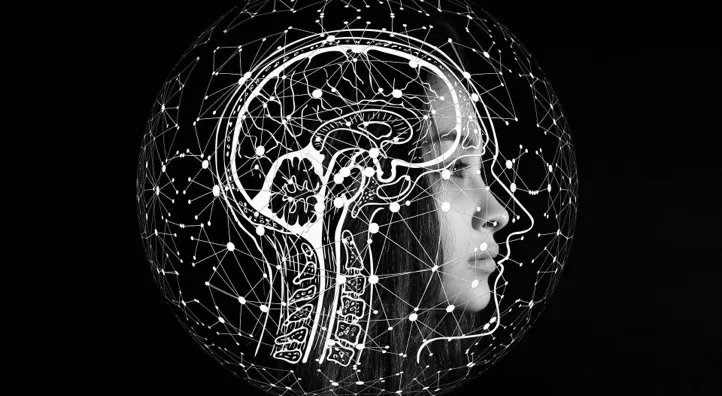Humans Are More Than Computers
When we say that the human brain is like a machine, it is a degrading comparison to humans. The same applies when we claim that artificial intelligence is more intelligent than humans. Such claims are made without considering various significant factors of intelligence that make humans distinct from mere machines.
In exploring AI, two noteworthy observations have surfaced. There is a universally agreed-upon scientific definition of intelligence, leaving the design of intelligent machines reliant on human models without a true understanding of our own intelligence.
Intelligence is intricate due to its various forms. A brilliant physicist may excel intellectually yet lack emotional intelligence. He may know how the physical laws of the universe work but may be socially clueless when it comes to how humans work with each other.
There are seven distinct centers of intelligence in humans—intellectual, emotional, instinctive/moving centers, sex, and two higher centers that only function as a result of inner effort. These centers are energetic and manifest in specific areas of the body.
The energetic nature of lower centers can be seen in life, such as witnessing a bad acting performance. An actor imitates the gestures and tone of voice that normally conveys emotions but his performance will be unconvincing if it lacks the correct energy. No matter how well he imitates an emotion, it will remain unconvincing if he isn’t feeling it. This demonstrates how the emotional center vibrates at a certain frequency and if not met, the audience will not be moved to feel that emotion unless he possesses that specific frequency.
Similarly, we can witness these energetic centers in sports or any physical activity. The body's energy, expressed in movements and tone, influences perceptions of confidence when winning or weakness when an athlete gives up.
Another example is when we imagine a man who walks into a restaurant and orders a soup that is made from ten ingredients. He has an educated palate and can list all the ingredients after one taste. Now imagine that a scientist in a lab is given the same soup and must test it to determine all its ingredients. Even with the best equipment, it would take him a substantially longer time to get the same results.
The man in the restaurant is using two kinds of intelligence: he needs instinctive intelligence to be able to distinguish the various tastes and smells, and intellectual memory to remember the names assigned to the different flavors. In the lab, the scientist is using only one, the intellectual center. Artificial intelligence can’t even taste the soup, let alone distinguish between flavors.
Common sense, rooted in shared experiences across multiple centers, also poses a challenge for programming robots. Human common sense integrates intellect, instinct, and emotion, making it complex to replicate in artificial intelligence.
For example, we know that fire burns, not only because we were told as children, but because we all have been burnt. The experience of being burnt places the memory (knowledge) in the senses (the instinctive center) and often, because being burnt evokes reactions like anger and fear, in the emotional center as well. Essentially the experience of being burnt is three experiences, all affecting different parts of us, which is why it is not easily forgotten.
Computers excel in known and defined systems, such as games with fixed rules like chess. However, life operates differently, existing on various levels with unpredictable interactions and disruptions. Comparing chess to life, the former is a closed system, while the latter involves external forces that influence activities over time.
While I haven’t even touched on the sex or higher centers and memory, claiming that artificial intelligence has more intelligence than humans is false. The claim that computers are more intelligent may refer to their ability to perform specific tasks better than humans rather than their versatility across various types of intelligence. It is the closed system of a computer that limits its capacity to navigate psychological or emotional advantages, as opposed to the multifaceted intelligence of a human.
© WaKeUpWoRLD
In exploring AI, two noteworthy observations have surfaced. There is a universally agreed-upon scientific definition of intelligence, leaving the design of intelligent machines reliant on human models without a true understanding of our own intelligence.
Intelligence is intricate due to its various forms. A brilliant physicist may excel intellectually yet lack emotional intelligence. He may know how the physical laws of the universe work but may be socially clueless when it comes to how humans work with each other.
There are seven distinct centers of intelligence in humans—intellectual, emotional, instinctive/moving centers, sex, and two higher centers that only function as a result of inner effort. These centers are energetic and manifest in specific areas of the body.
The energetic nature of lower centers can be seen in life, such as witnessing a bad acting performance. An actor imitates the gestures and tone of voice that normally conveys emotions but his performance will be unconvincing if it lacks the correct energy. No matter how well he imitates an emotion, it will remain unconvincing if he isn’t feeling it. This demonstrates how the emotional center vibrates at a certain frequency and if not met, the audience will not be moved to feel that emotion unless he possesses that specific frequency.
Similarly, we can witness these energetic centers in sports or any physical activity. The body's energy, expressed in movements and tone, influences perceptions of confidence when winning or weakness when an athlete gives up.
Another example is when we imagine a man who walks into a restaurant and orders a soup that is made from ten ingredients. He has an educated palate and can list all the ingredients after one taste. Now imagine that a scientist in a lab is given the same soup and must test it to determine all its ingredients. Even with the best equipment, it would take him a substantially longer time to get the same results.
The man in the restaurant is using two kinds of intelligence: he needs instinctive intelligence to be able to distinguish the various tastes and smells, and intellectual memory to remember the names assigned to the different flavors. In the lab, the scientist is using only one, the intellectual center. Artificial intelligence can’t even taste the soup, let alone distinguish between flavors.
Common sense, rooted in shared experiences across multiple centers, also poses a challenge for programming robots. Human common sense integrates intellect, instinct, and emotion, making it complex to replicate in artificial intelligence.
For example, we know that fire burns, not only because we were told as children, but because we all have been burnt. The experience of being burnt places the memory (knowledge) in the senses (the instinctive center) and often, because being burnt evokes reactions like anger and fear, in the emotional center as well. Essentially the experience of being burnt is three experiences, all affecting different parts of us, which is why it is not easily forgotten.
Computers excel in known and defined systems, such as games with fixed rules like chess. However, life operates differently, existing on various levels with unpredictable interactions and disruptions. Comparing chess to life, the former is a closed system, while the latter involves external forces that influence activities over time.
While I haven’t even touched on the sex or higher centers and memory, claiming that artificial intelligence has more intelligence than humans is false. The claim that computers are more intelligent may refer to their ability to perform specific tasks better than humans rather than their versatility across various types of intelligence. It is the closed system of a computer that limits its capacity to navigate psychological or emotional advantages, as opposed to the multifaceted intelligence of a human.
© WaKeUpWoRLD




